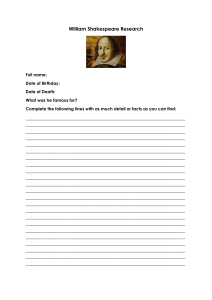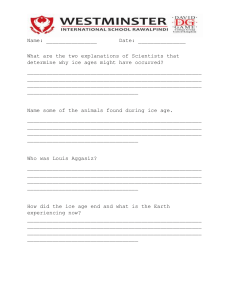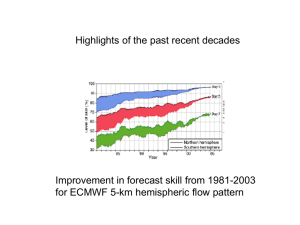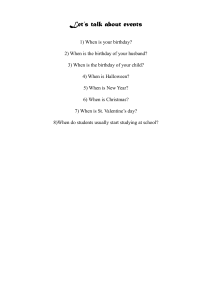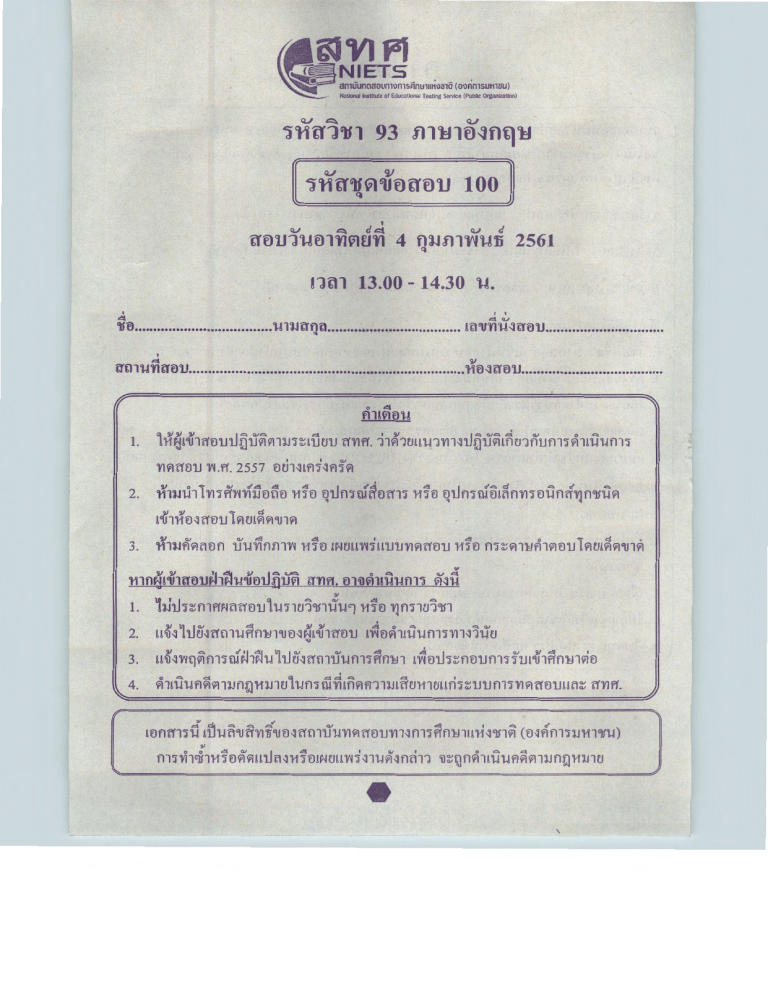
§lVJfl
~ - NIETS
~
an1tiunaaaumomsfinuJUHo01fi (oorinlSUHlOU)
·
National Institute of Educational Testing Service (PubliC Organization)
v
'j11tf1'lfl
~
[
93
v
illl:J _lfl~flt)l:J
'l''l1tl'l.f~~tltHl1J
l
100
!1tll 13.00- 14.30
u.
I
I
~
I
q~
Clftl •••••••••••••••••••••••••••••••••••• UltltlfJfl ••••••••••••••••••••••••••••••••••• !fi1J'YIU\Itltl1J •••••••••••••••••••••••••••••••
I
q
~
tl'OlU'Yitltl1J •••••••••••••••••••••••••••••••••••••••••••••••••••••••••••••••••••••••• 'Vitl\ltltl1J •••••••••••••••••••••••••••••••••••••
0
~
fll!VItlU
1.
1 M'~t~Tff~u11Bu~\?lllJ'J~!ihJu tr'Ylff.
i1~1vu 'UTV11~11Bu~t~v1nu n11~1tih.~ n11
'Yl~tr~u ~.ff. 2557 ~~l~!fl~~flr~
2.
l1'1t1t'h t'Yl'Jff'~vf:U~i1~ 11~~ ~11n1w~~tr11 11~~ ~11n'Jw~t~n'Yl'J~un-ff'Yln9fu~
q
q
q
t~lM~~trtJu 1~m~~"1Jl~
3.
MltJfl~~~f1 uuiinfll~ 11~~ !~WU~~UU1J'Yl~ff~1J 11~~ f1'j~~Tl:Jfll\91~1J 1~m~~"1Jl~
't1ln~t,JTtnluH1Nu~enJ~~
IT11f1.
C1li1~1Ailunl'j ~\ld
'JI
1.
,ti11'J~nlff~~tr~u1u'Jlt~i9fliru~ 11~~ lJf111t~i9fl
2.
u ~~ i 11v.:Jtrtnuffn£J1"1J~.:J~t~ltr~u
3.
u ~.:J~ tl~f11'J wih-rJu, 11 V.:JfftllU'W f11'Jftf11:Jl
4.
~l!U'U fl ~\?lllJf1Ql1lJlt11 U f1'J W~!fl~fl1llJ!~tl111tiU n'J~UU f11'J 'Y1 ~ fftJUU ~~ ff'Ylff.
'U
r~~~ltuu nl'J'Yll.:Jiirv
'JI
!~tJ11'j~ fHJ1J f11'J i'u !~lfff11:Jl~'el
f11'JVhilM~tJ~~u 11~-:JM~tl!~tlu ~~ .:Jl'U ~.:Jnri11 1l~\}f1~1!
•
uu fl~\?lllJ f1fJ11lJltJ
.,
'llf.lt1~t~u~U'U'U'YivHH>'U
;;el tJ ~
H'U'U't'l~trel'U'llU'Uuii 22 li'Ul
cfi1u1u so ;tel
'lffilu t) 1"j tlel 'U
1.
&;iuu~el- Ultltlt1t1 m,.~,r~tlel'U iHllU~{Jel'lJ Ut1~Mel~{Jel'lJ'UU'Yi.UltJm&'U'U'YI~tlel'U
2.
~'l1'iltlel'U~el- UltJ(Jt1t1 tt16ij~,r~tlel'U 'l'irtr1'111~{Jel'lJ tt16ijtJ'l~cfilvl1'11'l~'l11'11U
~
~
6'1
o
I
QJ
QJ
'lJ 'lJ
~ \JI
t:~.d\JI
I
6'1
I
'lJ
'lJ
'lJ
!U fl'l~~ l'Hfll~el'U 11Vl'l ~t1'UV11fj!6}11 {Jel'lJ'Yi'lel &tJ fl'l W'YI &tJVl'l ~ &'HU'il~fji'Jtltl'el'U
I
~
o
o
!'VH)6}Jelt1'l~Vll'Hfl1Vlel'Utll'lel~
'lJ
Ht11t1'lelt1 I
aa
'lJ
<1
'l~'Ulf.l &'t'i(Jtl'IJ'lW
U1J 1J 'Yl ~HHl 1J
s.
trleltrel'lJ!{J~ 'il
6.
1~elUW1Vl1M~!sU1 {,lfl'lJ elelt1'ill t1Mel~trel'U rlelU 'YitJ~nt11trel'U
~
u
1M'trelv. n'l~~l'HrllVl fl'U1 1luu'U'U'YI~trel'U
qJ
13 'Yirlfl
SECTION I: LISTENING & SPEAKING (18 items)
Directions: Read the following conversations and choose the best
expression to fill in each blank. (Items 1-18)
Conversation 1
Situation: Liz wants Rose's opinion on a new dress she is trying on.
1
?
Liz:
----
Rose:
Hmm. Do you want me to be a good friend or a bad liar?
Liz:
_ _2___ . What is your honest opinion?
Rose:
Well, _ _3_ _ you certainly look different!
1.
1. How is the feeling
2. How are things with it
3. How do I look
4. How is it going
2.
1.
2. No comment
Go ahead
3. Can't complain
3.
4.
1. let's just move on
2.
let's just have it
3. let's just be friends
4.
let's just say
•
Good enough
Conversation 2
Situation:
John is talking to his sister, Jane, at home.
John:
Did you use tny phone while I was in the bathroom?
Jane:
No, I didn't.
John:
I thought _ _ 5_ _
Jane:
Why do I need your phone? _ _6_ _ I can use.
John:
Well, yours is pretty outdated. Mine is a lot _ _7_ _
Jane:
Honestly, John, yo,u _ _ 8_ _ about your phone.
4.
5.
4
1:
Why would I do that
2.
What should I do
3.
When should I go
4.
Where might I wash up
?
1. you have tnade up your tnind
2.
you ought to get in touch
3.
you might have made a call
4.
you would tnake no tnistake
•
"IMtl'l'til
93 il11:nB~flt)1:J
.
,~§1 VI f1
~'ll~l~me~~ 4 fl'll "'l'l~'ll~ 2561
dt'6U riYIUrl
qtNcJ' r1t'6J.J
6.
7.
~NIETS
.
amuunoaoumomsFinH111HOII1o (oonmsunlllu)
I've got 1ny own
3.
I've been busy
4.
I've got better things to do
1. handy and helpful
2.
expensive and awesome
3. adequate and useful
8.
4.
newer and 1nore stylish
1.
look too nervous
2.
are way too obsessive
3.
always coin plain
4.
never care 1nuch
•'J~l
-lnsUtuteofEducationaiTestJngSerW:e(NlllcOrganizatlon) &
1. I've been there
2.
4
•
bl
13 • OO
-
14 • 30 'll
t'6o
Conversation 3
Situation: Ben and Bob tneet in a school canteen.
Bob:
Hi Ben! - -9- -?
Ben:
Fine, I guess.
Bob:
Really? _ _ 10_ _ Is something wrong?
Ben: . I didn't get the scholarship to study in the US and
·Bob:
9.
Come on.
11 _ _
12- - - You can apply again next year.
1. How do you do
2. How do you do it
3. How are you doing
4.
How about doing it
10. 1. You don't look like it
2.
You can't take it with you
4.
You couldn't do that
11. 1. it couldn't be better
2.
it has got me a bit down
3. it never hurts to ask
4.
it won't bother me
3. You could be fooling around
12. 1. It's a devil in disguise
2. It's out of your reach
3. It's not wrong to be true
4. It's not the end of the world
•
'iMtli'lfl
93
,
r'II'C\l~mP~~
t'6U
rU'IU r1
n11:ne~nq1:J
·~VI
f1
T---=F N I ETS
4 ~'lll
~l'll~'lll~ 2561
IJ""df rt
t'6.U
amuunoauumllmsiinliliiHillllfi (uOOnlSUHlZIU)
•
I'J'I'\l
bl
NatJonaiiAst~uleofEducatlonafTesungSemce(PubhcOrganizaoon) ~
13 00 14 30
o
-
•
'lll
t'6o
Conversation 4
Situation: Mary is talking to Totn before class.
Mary:
Tom, I've got diarrhea. _ _ 13 _ _ ?
Tom:
Go and get some sports drinks with electrolytes.
Mary:
14
?
-----
Tom:
It'll help rehydrate you and settle your stomach.
Mary:
Really? _ _ 15 _ _~· You seem to know what's best for me.
Tom:
No problem. Also stick to bland food for a while and get plenty of rest.
Mary:
16
Tom:
17
Mary:
In that case,
Tom:
OK. See you then.
. Maybe I'll stay home tomorrow.
. Don't forget we have to finish that report tomorrow!
18 _ __
, , 13. 1. What do you think I should do
2.
Would you believe tne
3. Mind if I do sotnething
4.
Since when
14. 1. Need I say tnore
2.
What is that going to do
3. Could you handle it
4. Any kinds of sports
•
'iMfli~l 93 i)l1:Jl~-Jfltfl:J
,
t<t VI P1
, ,
.
tal~r.u>~~
•"'lq'ifq
~~
1vqHU
4 flq
2561
IIYIU II
qct-.lcJI
f1 H.U
•
amuunoaaumtlmsFin1:1111NOll1ii (aonmsunlliU)
-
Good for you
3. Thanks
4. Don't tnention it
16. 1. That was close
2. That's dutnb
3. That's a great idea
4.
•
NationallnstltuteoiEducatiooaiTestingSerAce(PublicO.ganization) II
15. 1. That won't do
2.
7
~NIETS
That's nothing
17. 1. You suppose
2. You wish I would
3. You'd better not
4. You won't forget it
18. 1. I will surely cotne
2. I will be right back
3. I will take a risk
4. I will have a word with you
•
1 bl 1 13 • OO
r,:\
-
14 • 30 1-A.
1'11uicu1 93
illlJl~~flt)lJ
I
.JlVI fll
~q 1 ~lq'tfq ,::_
1vq1-6~~,~me~~
U
r I YIU r I 4 IJ Nc:f I r 1 1-6 .lJ 2561
NIETS
T
·
.
amuunoa~umomsfinliliiHOlllO (~o.Fimsu11lliU)
8
, ~
Natlooallnstltute of Educational Testing SeMce (Public Organization) ~
1 1 13 OO 14 30
lbl
•
-
o
q1
l-"6o
SECTION II: READING (18 items)
Directions: Read the following passages and choose the best answers to
the questions. (Items 19-36)
Passage 1
This sign tells you that a crossroad or intersection is ahead. Be prepared to slow
down and stop. -Be sure to look both ways before turning or proceeding ahead.
19. Which indicates the sign described above?
•
1.
2.
3.
4.
•
91
111-!1
Passage 2
Unicorn and Pegasus
"I'm the handsotnest creature there is!" _
Said the Unicorn.
"I have a lovely, shiny coat,
And such a pretty hom."
Pegasus said, "You're not so great,
I can fly! "He laughed.
"I have a lovely pair of wings.
I think your hom looks daft!"
20. Which of the following is the Unicorn?
I.
2.
3.
4.
•
9
~Mffi'lfl 93 JlllJl~~fltllJ
,
:!{'lt'<ill~r.'lfjc! ~
d t-6U
riYI
rl
.;m
4 fl'~'
"l'l,tr''l ,.::_ 2561
'I <Nell
f1 t-6JJ
VI f'1
T - · NIETS
•
anniunoaoumomsiinttliiHO!Illi (oolimsuHl!IU)
10
•'"'~~~l
Plationallnst~uteoiEdocatlonalfestJngSeMce(Pulllk:Org.wr.atlon) ~
dt>l
13.00- 14.30 'U.
Passage 3 : For items 21 - 23
It was the day of the big sale. Rumors of the sale and some advertising in the
local paper were the tnain reason for the long line. The line was formed by 8:30
in the tnorning in front of the store. A small man pushed his way to the front of
the line. But he was pushed back with loud and colorful curses.
On the tnan's second attetnpt, he was punched at the jaw and knocked around
a bit. He was then thrown to the end of the line again. As he got up the second
time, he said to the person at the end of the line, "That does it! If they hit me one
more time, I don't open the damn store!"
21. Why were so many people waiting in front of the store?
1. To buy discounted things
2. To be on strike
3. To follow the store regulations
4. To break into the store
22. What happened to the tnan the first titne he went to the front of the line?
1.
He was cursed and kicked.
2.
He was driven away and yelled at.
3. He was pushed to the very front.
4. He was seriously injured by the people along the line .
•
·n1ll1'111 9_3 Jlnne'~nq1J
~ r!~ . f)'ll
rv
1 CU@ol'VIml'I'VI
4
H>U
IIYIU II
.
rv
r!
nl'lAI'I I 'I'::
<~"""'
11 H>JJ
, - ~~J.'IET~
~
·
-
11
-
•
-
•
amuunoat>U01001Sfl01:1111110ll10 (t>OAnlSU111liU)
2561
•·
•
NationailnstituteofEducatlonaiTestingSeMce(PublicOrganizatlon) ~
1 ~bl 1 13 o 00 - 14 o 30
q I
H>o
23. What would tnost likely happen to the tnan in the end?
1. He would go back hotne.
2. He would retnain at the back of tlie line.
3. He would wait until the line was shorter.
4. He would be allowed to go in front of the line .and open the store.
Passage 4 : For items 24 - 27
Russians generally don't celebrate birthdays before the actual day because this is
-
'
considered bad luck. There is a belief that the birthday boy or girl who celebrates
a birthday in advance may not live to see his or her special day. Also, many
people don' t celebrate the 40th because this number is associated with death.
In Russia, a birthday celebration is usually a great dinner with many dishes. It is
a custom for the birthday person to provide the feast, and this includes paying for
dinner if the celebration takes place in a restaurant.
Russians do not give sotne kinds of presents to birthday persons. Knives and
scissors symbolize future conflict and are therefore seen as a bad omen.
Likewise, scarves and handkerchiefs represent sorrow and clocks are a sign of
departure. An empty purse is believed to cause poverty. Flowers given for a
birthday celebration must be in odd number.
indicates misfortune and even death .
•
An even number of flowers
mVJ f1
'i'tYtl'~'hn 93 flllnfl~flt]l:J
,
~~l~r.'IP~~
1QJq~U
IIYIU II
QJ
4
"'q 1 "'lq"'q I 'I':
IJ<t--lcfJ
11
-~
~.U
12
s_!!N_IETS _ . _ .
r!
2561
amuunoaoumomsnm:llllt10!Ilo (ooAmSUt11!1U)
•
NatlonallnstiluteofEducatlonaiTesUngSeMce(Plillk:Organizatlon)
~1
l~l
bl
13 • OO - 14 • 30 'U.
24. According to the passage, which of the following is TRUE?
1. If Russians celebrate their 40th birthdays, they will surely die.
2.
Russians do not nonnally give anything sharp as a birthday present.
3. A Russian girl will likely be glad to receive a Thai silk scarf on her
birthday.
4. In Russia, expenses on one's birthday celebration are usually split among
friends.
25. For his girlfriend's birthday, what should Vladimir, a Russian boy, do?
1.
Say "Happy Birthday" to her beforehand.
2.
Give her a bouquet with 8 red roses on her birthday.
3. Give her a purse with a 10-ruble banknote in it on her birthday.
4. I-Iave a dinner party for her the night before her actual birthday.
26. Based on the article, which of the following words would best describe
Russians' beliefs about birthdays?
1.
Superstitious
3. Fortunate
2.
Wasteful
4.
Dependable
27. Which is the best title for this passage?
1. Unusual Birthday Rituals
2. Russian Bad Omens
3.
Strange Russian Traditions
4. Do's and Don'ts of Birthdays in Russia
•
'iMH~hn 93 illlJl~~flt")1:1
I
m,. P1
G~
•~l'YI~m"~'YI-=t
"lq'!fq 1t_
1cuqHU
4 fl'll
YIU
Q~dll r1 H.U 2561
~NIETS
amuunoa<>unlQmsfinttliiMOlllo (oonmsu111liU)
.
91
'H'Ul
1 1 13 OO
, ~
NationallnslituteoiEducationaiTHungSeMce(Publc:Orgariratlon) II
bl
o
-
13
14 o30 'U.
Passage 5: For items 28- 31
A team of scientists has come up with a plan they say could help rebuild the
Arctic ice cap. The ice cap is a huge area of sea ice that covers most of the Arctic
Ocean all year round. Usually, the sea ice gets thicker and spreads further each
winter, but this hasn't happened for the past few years.
Last month, the ice cap had shrunk to its stnallest size since scientists began
keeping records of it 3 8 years ago. The weather in the Arctic has been unusually
warm this winter. Some days, tetnperatures have been 20 degrees Celsius higher
than is normal for this titne of year.
The Arctic ice cap is itnportant because sea ice reflects heat and light from the
sun back into space. With less ice, the ocean would absorb tnore heat. The Arctic
would wann up even tnore quickly, and more ice would tnelt. Without sea ice,
many anitnals would lose their natural habitats and could becotne endangered. It
could also affect the weather, with more storms and erosion along the coast.
Dr. Steven Desch and a group of scientists frotn Arizona State University in the
United States think they can help to build up Arctic sea ice again. They want to
install wind-powered putnps on the existing sea ice. During the winter, the
pumps would spread water frotn the ocean over the surface of the ice where it
would freeze and fonn a new layer of ice. The scientists say that in 10 years, this
could add an extra tneter of ice to the ice cap. (The Arctic ice cap is about two to
three meters thick right now.)
•
The plan would require about 10 m,illion pumps and it would be very expensiveabout $655 billion. Sotne other scientists are wondering if the putnps would
actually work in harsh Arctic conditions. They are also concerned about how the
project might affect the environment.
28. According to paragraph 2, what actually affected the ice cap?
1. Hot weather
2.
Heavy stonns
3. Harsh Arctic conditions
4.
Coastal erosion
29. According to the passage, what are the scientists proposing to do?
1. To reduce greenhouse gases
2. To strengthen the Arctic ice cap
3. To find new habitats for animals
4. To solve the problems of environment
30. What is NOT tnentioned in paragraph 4?
1. How the wind-powered putnps work
2. How to install the wind-powered pumps
3. The current state of the Arctic ice cap
4. Time taken for a layer of ice to fonn
31. In the last paragraph, how do some other scientists feel about the project?
1. Confident
2. Excited
3. Uncertain
4.
•
Relieved
·rH'IT1'111 9,3 mtne'-3oqll
.Jll'IET~
(Qol~mP1~ 4 fl'U '"'l'~~~'t'll •.t:_ 256
1v'll1-t>U
1
riYIU r1
'li<J-.Idll rt 1-t>ll
amuunoa<>umomsi'intJliiHil!llii (t>llAmsu111llU)
Nationallnstltuteof Educationai Testlng Service (Public Organlz.ation)
91
'HUl
•'J~l
a
bl
15
13.00 -14.30
u.
Passage 6 : For items 32 - 36
Someone recently bought a lock of John Lennon's hair for tnore than $48,000
Canadian dollars. The 10-centimeter (four-inch) strand of hair is about 50 years
old. Hairdresser Klaus Barbuck gave Lennon a haircut in 1966 for the movie,
"How I Won the War," about a fictional British anny troop. He saved the hair all
that time. It turns out, it was a stnart idea.
John Lennon was a fmnous British musician-one of the tnost fmnous in the
world. He was one of the Beatles, perhaps the most popular rock band in history.
After the Beatles broke up In 1970, Lennon went on to have an extretnely
successful solo career.
While he was with the Beatles, he wrote (often with fellow Beatie Paul
McCartney) tnost of the Beatles' biggest hits. He was also one of the band's lead
singers, so when you hear a Beatles song, chances are John Lennon wrote it and
can be heard singing it.
Lennon died tragically in 1980 when he was 40 years old, but music lovers
around the world still retnember him and his songs, including "A Hard Day' s
Night," "Help!" and "I Wanna.Hold Your Hand" when he was with the Beatles
and "hnagine" and "Give Peace a Chance" afterwards.
Paul Fraser, who lives in Britain and collects Beatles tnetnorabilia (things frotn
and about the Beatles), bought the strand of hair. He paid about three times tnore
than anyone expected, according to the British newspaper, 'The Guardian' .
•
'iMffi~l
93
,
iiTl:nfi'~ntp:J
m
'~
VI f1
~NIETS
1 nlq~q 1 ~
1vqHI'~l'YI~me~'YI""'
4 nq
U
YIU
IJ ~ <J I
r 1 HI.U 2561
amuunoa<>umomsnnl:lliiHOZnfi (<JOJimsuHl!lu)
•
National Institute of Educational Testing Service I.Pulliic Organization)
32. Which of the following is NOT true about John Lennon?
1. He was a fatnous English singer and songwriter.
2.
He was a tnetnber of the Beatles until 1970.
3.
He usually wrote all of the Beatles songs by himself.
4.
He died young at the age of 40.
33. Why did John have his hair cut?
1.
To give it to the hairdresser
2.
To have a tnodern look
3. To look good for his new albutn
4. To look like a soldier
34. What did John do after the breakup of the Beatles?
1. He retired frotn music.
2.
He joined a different band.
3. He pursued a career in movie acting.
4.
He continued his career as a solo tnusician.
35. Why was a lock of Lennon's hair worth a lot of money?
1.
It was very old.
2.
It was sought after by collectors.
3.
It was cut by hairdresser Klaus Barbuck.
4. It was written about in the Guardian .
•
16
OO
1 _,~
<J bl 1 13 •
~
-
14 o30 'U.
36. Which of the following is a solo John Lennon song?
1. Help
2.
Give Peace a Chance
3. A Hard Day's Night
4.
I Wanna Hold Your Hand
SECTION III: WRITING (14 items)
Directions: Read the diary below and select the best word choices to
complete it. (Items 37 - 40)
Dear Diary,
Today has been super! I am having a _ _ 37_ _on holiday! First, we had
breakfast on the beach. I had some toast. Then, my family and I swam in the sea
and played football. _ _3 8_ _ I walked back to the hotel with my big
brother. We played water polo in the pool and had sotne orange juice. Next, I
went shopping with my dad and I found a cool _ _39_ _ . I am wearing it
now! Finally, I walked back to the hotel with tny dad to find the rest of my
family. We had a nice meal and I fell asleep _ _40 _ _ the tnovie 'Frozen'.
Daisy
•
1M~Ji'lfl 93 illltl~~ntp:J -~iJ VI f1
~q~~,'fl~r.u~~ 4 "'q'"'lq~q.::. 2561 ~~u!~!~siimnutiozno(oonmsuttliiU) 1 ,~,
dt-6U
YIUJI
IJ""df
J1t-6JJ
-lnolltuteofEducatlonaiTesUngSeMce(PulllicOrgarizatlon) lldbl
37. 1. great time
2. good friend
3. wonderful news
4. bad feeling
38. 1. Whenever
2. However
3. At the end
4. After that
39. 1. pair of shoes
2.
crystal clock
3. pearl necklace
4.
set of chopsticks
40. 1. watch
2. watched
3. watching
4. to watch
•
m'h 18
13 • 00 - 14 • 30 'U.
Directions: Read the letter below and select the best word choices to
complete it. (Itetns 41 - 44)
Dear Ann,
I received your letter asking about plans for your time with tne and tny fatnily on
the exchange progrmn.
I think my mom and dad will arrange things for us before school starts. We can
spend a few days as well up north where there are lots of hills and forests. The
weather is cold and the flowers beautifully _ _41 _ _ around December.
During your three-tnonth stay, there is a long weekend _ _42 _ _ we can fly
down south. There are a lot of long sea beaches. We will enjoy switnming and
water sports there. My tnotn and dad are also planning for us _ _43
the
North and the Northeast at the end of your exchange program. Phae Mueng Phi
National Park in Phrae province and Satnphanboke in Ubolrajathani province are
the two places of natural beauty that _ _44_ _
Hope to see you soon.
Sincerely Yours,
Usa Thaidhanna
•
)..rn1~,
93
il11:nfi-:Jnt)lJ ·
I
;;'q tbll~me~~
<1 ~U fiYIU fl
4
41. 1.
blow
2.
flow
f)'~ 1 "'l'~~'~ 1/:
Q
<Nd I
f1 H.U
"~VI
f1
T . NIETS
256 1
amuunoaaumomsiin~:~luttozna (aonmsuHliiU)
NatlonallnstituteofEducationaiTestlngServlce(P\IIlliCOrganization)
3. bloom
4.
fail
42. 1. when
2. what
3. why
4.
how
43. 1. travelled by
2. travelling from
3. to travel to
4. travel in
44. 1. you cotne up with
2. you should not tniss
3. you'd better watch out
4. you'd rather forget
•
20
1~ ..,~
<1bl 1 13.00- 14.30 'U.
'i'l1i.Y1Yl
9_3
t:o\l~me~~
1<V'IHU
riYIU II
illlllii'.:.tflt)ll
4
c!
Q1JJll~Ufi
<V
r!J
~ amuunoa~umomsiinHlUN\llllO
~
· Jl~
2561
,
'1.1
'HUl
(<>o.nmsunlZIU)
,
:i't
21
1 t>l 1 13.00- 14.30
NatiooailnstituteoiEducationaiTestingSeMceiPubllcOrganizaUon) &
u.
Directions: Read the text below and select the best word choices to
co1nplete it. (Items 45 - 50)
In Washington, Bao Bao delighted the zoo and panda fans.
She was born on
August 23, 2013. Her tnother Mei Xiang, _ _45 _ _ her first cub, Tai Shan,
in 2005,
46 _ _ failed to get pregnant again for years. Then, a cub was
born in 2012 but didn't survive. Mei Xiang has since had a third cub, Bei Bei,
47
48
was born on August 22, 2015.
Older brother Tai Shan
the zoo for China in 2010.
Bao Bao will also leave for China next year. The zoo is preparing for Bao Bao' s
49
. A travel crate will soon be placed in Bao Bao' s habitat so she
50- -
45. 1. was born
2. was bearing
3. had birthday
4. gave birth to
46. 1. so
2. for
3. but
4. as
•
~..rff~hn 93 flllJl~~flt]lJ
,
-~iJ VI P1
~
fl'~ 1 "'l'~i;('~ 1f:.
1 ""l~mfjc!
1QJq~U
JIYI
Jl 4
q~<JI J1~JJ 2561
~NIETS
amuunaallumomsnm11UHozna (lloA'msut11ZIU)
.
NatlonallnsUMoofEducationai TostingService\Pul>icOrganiwlion)
47. 1. who
2.
whotn
3. whose
4.
48. 1.
when
leaves
2.
left
3.
was leaving
4.
had left
49. 1.
food
2.
freedotn
3.
tnedicine
4.
departure
50. 1. uses it to get to
2.
can get it to be used
3.
can get used to it
4.
will use to get it
•
22
1 1
! ~
bl
13 • OO
-
14• 30 1-A.
.
1111111111111
93
